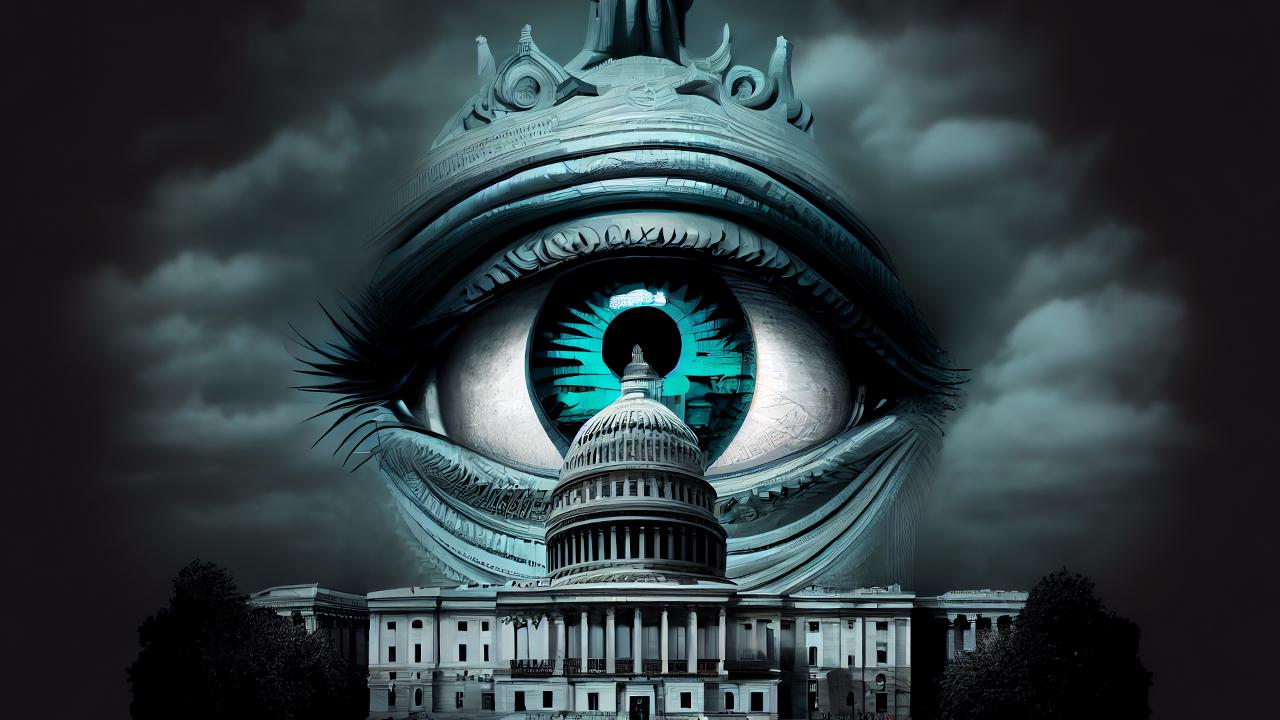
The Bible specifies that the purpose of civil government is “for the punishment of evildoers and the praise of those who do well.” I Peter 2:14 (emphasis added). A ruler is described as a “revenger to execute wrath upon him that doeth evil.” Romans 13:4 (emphasis added). In both verses, government’s role is described as responding to evildoing after it occurs — not anticipating and preventing it from occurring. The many Old Testament passages on punishment for wrongdoing are no different.
Today, many Americans want government to take on a function beyond its Biblical role to protect us — to make us safe by preventing wrongdoing — and government encourages that view. Once a government convinces the public that society would be better off — be safer — if it has the information to take action to prevent wrongdoing, it gains power and we lose liberty. From the government’s perspective: It’s not about safety; it’s about control. Our desire for safety provides government the rationale for conducting surveillance. Indeed, the more we seek safety, the greater surveillance powers that the government will claim it needs.
A 2002 movie, Minority Report, starring Tom Cruise, envisioned a world where the government relied on three clairvoyant persons to identify crimes which would occur in the future, allowing the government to dispatch law enforcement teams to prevent the crimes from occurring. As usually occurs, government promises of utopia actually result in a world better described as a dystopia.
When most citizens become concerned about the loss of liberty from surveillance, the standard justification is: “If you’re not doing anything wrong, you have nothing to fear.” And the standard response of most citizens is “I’ve got nothing to hide.” But that is the wrong answer. No American should expect or ask government to make us safe, and no one should be complacent about being constantly monitored like a small child. As Benjamin Franklin warned:
[t]hose who would give up essential Liberty, to purchase a little temporary Safety, deserve neither Liberty nor Safety.
George Orwell’s 1984 reveals the cost paid by persons living under constant surveillance. It chills and crushes freedom of thought and action. Orwell’s fictional land of Oceania features ubiquitous posters which show the words “Big Brother is watching you.” The posters have eyes that seem to follow the viewer wherever he or she may move. See H. Bloom, ed., George Orwell’s 1984 (Chelsea House: 2004). This description more and more resembles Western cities, laden with cameras on every light pole, combined with facial recognition, cell phone tracking and other means which chronicle in real time innumerable details of our every interaction.
Our nation’s obsession with safety spiked after the events of 9/11. Those in government who knew of and had actually anticipated the specific risk of terrorists flying planes into important buildings, but ignored all the warnings, were never held to account. The Administration of George W. Bush preferred to look ahead. The Bush Administration used 9/11 to demand new powers — to keep us safe, of course. Forty-five days after 9/11, Congress passed an ill-named bill, “the Patriot Act,” to vastly expand the authority of government to surveil Americans, and the Fourth Amendment was rarely mentioned.
The Patriot Act was not written to respond to 9/11 — it had been written well before 9/11, just awaiting the opportunity for an event that would enable it to get enacted. One analysis by the ACLU accurately observed: “[w]hile most Americans think it was created to catch terrorists, the Patriot Act actually turns regular citizens into suspects.” Bush’s entire Presidency was based on the assertion that “President Bush Has Kept America Safe.”
Even during the Trump Administration, the push for more and more surveillance has continued. Attorney General William Barr gave an address at the 2019 International Conference on Cyber Security (ICCS), in which he “focused on the need for consumer electronic products and applications that use encryption to offer a ‘backdoor’ for the government” to be able to read encrypted communications. What’s the reason? It’s the usual — “public safety.” Barr asserted “‘warrant-proof encryption is … seriously impairing our ability to monitor and combat domestic and foreign terrorists.’” Translated, the government needs to be able to surveil all persons all the time so it can prevent wrongdoing and keep us safe. Individual liberty had no place in his analysis.
In October 2019, Barr announced the new “national disruption and early engagement program” ostensibly designed to “identify, assess and engage potential mass shooters before they strike.” Barr’s initiative “suggest[s] that the way this will be accomplished is through increased mass surveillance of everyday Americans and the use of algorithms to analyze that bulk data for vaguely defined symptoms of ‘mental illness.’”
The government has also found ways to spy on Americans without doing the surveillance work themselves. In the spring of 2023, the Office of the Director of National Intelligence revealed that the government has been buying vast amounts of data on U.S. citizens (obviously with taxpayer money), greatly compromising any conception of privacy — and all without a warrant. “[T]he report states that the government believes it can ‘persistently’ track the phones of ‘millions of Americans’ without a warrant, so long as it pays for the information.” The report admits that government can use the information to track Americans’ political activities, including “‘identify[ing] every person who attended a protest or rally based on their smartphone location or ad-tracking records.’”
How government uses that information is equally disturbing, and it is not a “conspiracy theory.” The same story in Wired.com explains that “the same mountain of data the government is quietly accumulating could be turned against Americans to ‘facilitate blackmail, stalking, harassment, and public shaming.’ Notably, these are all offenses that have been committed by intelligence agencies and White House administrations in the past.” (Emphasis added.) In other words, by surveilling us, the government obtains the means to control us.
In a total surveillance state, it is not just the People being watched — but also mayors, state legislators, governors, Congressmen, federal judges, and even Presidents (at least those named Trump). It certainly could explain why our “heroes” in Congress who sound so good on the campaign trail promising to defend individual rights, ultimately vote to give the FBI, CIA, NSA, and others more power. As Senate Majority Leader Chuck Schumer told Rachel Maddow, President-Elect Trump was “really dumb” for picking a fight with intelligence officials: “Let me tell you: You take on the intelligence community — they have six ways from Sunday at getting back at you.” This is one time Schumer told the truth! The intelligence community can collect information about us and then engage in “blackmail, stalking, harassment, and public shaming,” and more!
Judge Andrew Napolitano provides a nice summary of the problem:
Surveillance is totalitarian. It is the manifestation of the tyrant’s wish to know all about a potential opponent…. Who can be happy while being observed by the government? A watched person changes behavior and loses liberty on account of being watched. The liberty to make unfettered choices, the right to shake a metaphorical fist in the tyrant’s face, the personal power to ignore what the government expects are all dissipated. A watched person hesitates to exercise freedom. [Emphasis added.]
What are the lessons to be learned here? Here are some “don’ts” to consider:
- Don’t ever allow the government (or their agents in the mainstream media) to stir up fear in your heart.
- Don’t obsess about your own safety.
- Don’t tolerate politicians who allow government to invade your privacy, because they want to control you.
Rather, rest in the notion that no matter what lies ahead, that God is sovereign, having complete control over all future events involving both individuals and nations, as even Ben Franklin believed:
[T]he longer I live, the more convincing proofs I see of this truth — that God governs in the affairs of men. And if a sparrow cannot fall to the ground without [H]is notice, is it probable that an empire can rise without [H]is aid?
Editor’s Note: To read the articles in this series, please click here.






